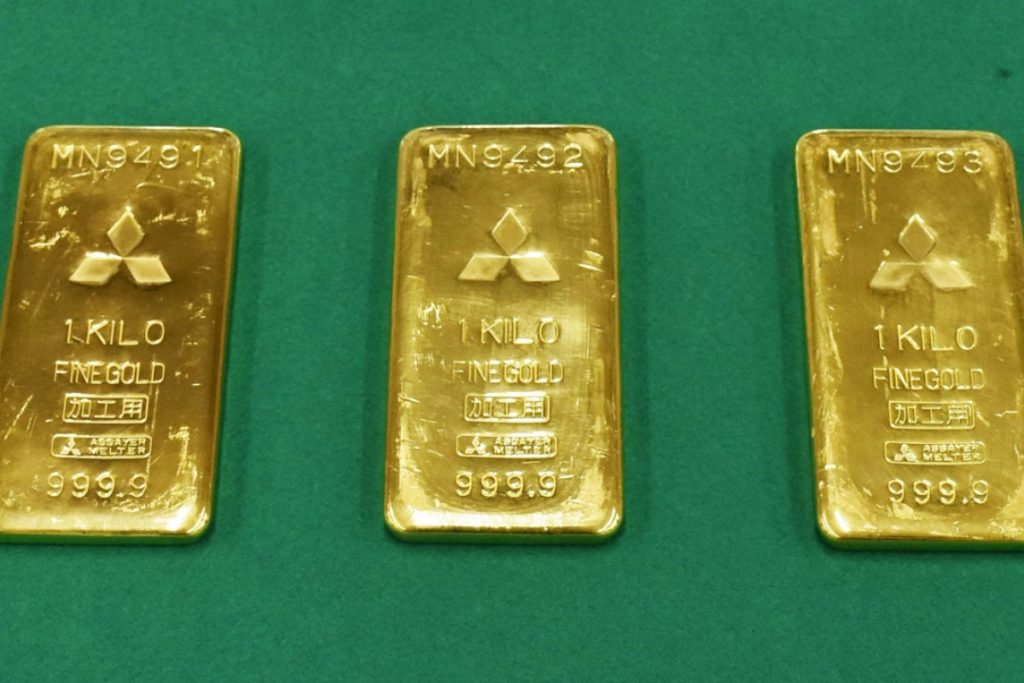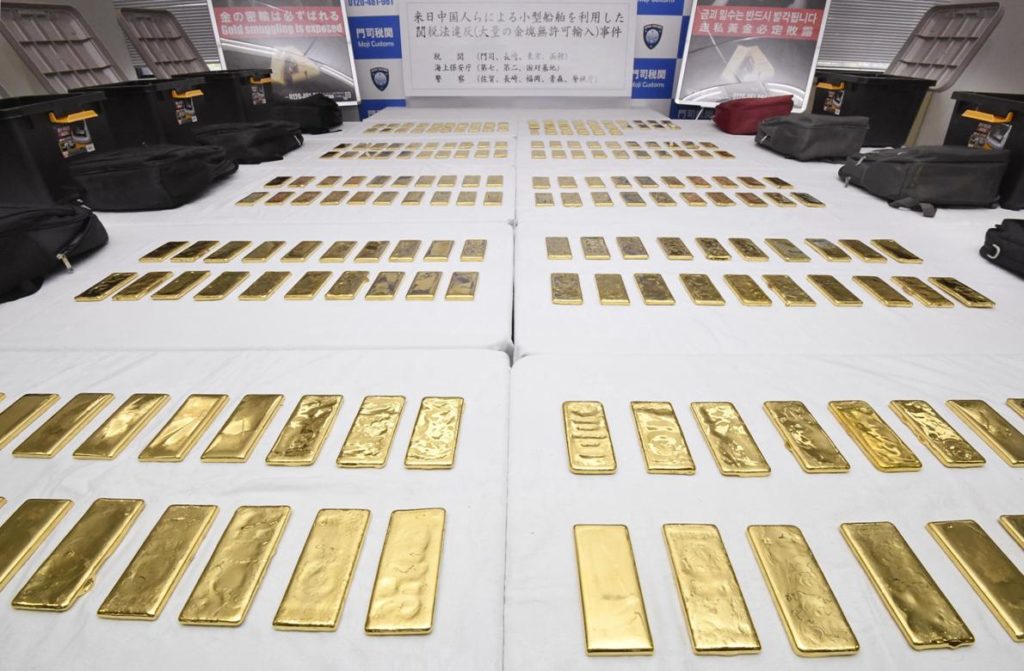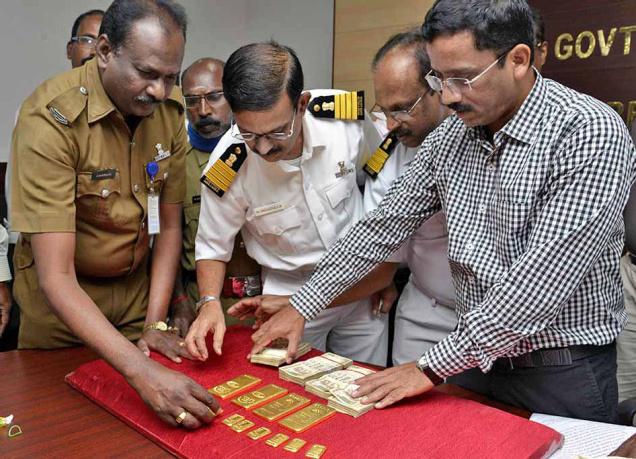How Governments’ War On Gold Leads to Smuggling
Smuggle gold to India and Japan has become a lucrative business for many dealers and middlemen across Asia. It is widely known that demand for physical gold by Asian populations is insatiable. From the estimated 25,000 tonnes of gold held by India’s population to the more than 20,000 tonnes of gold calculated to be held by China’s population, these two countries alone hold nearly one quarter of the world’s known above ground gold stocks.
However, beyond China and India, gold is central to almost all Asian societies and cultures. While sometimes forgotten, Japan became one of the world’s largest gold market in the 1970s and 1980s when it imported thousands of tonnes of gold to satisfy its investment boom in gold. Hong Kong’s gold market, one of Asia’s oldest, is and has been a physical gold hub for more than 100 years. Adding in South Korea, Taiwan, Singapore, and Thailand, and the Asian region then is truly the centre of the physical gold world.
But while some Asian countries’ governments, such as Singapore and Hong Kong, embrace a free-market ethos to supporting their gold markets and allowing unhindered imports and non-distorted saving and investment in gold with zero Goods and Services Tax on investment gold, other Asian economies, such as India and Japan, still throw up import barriers, taxes and penalties, distorting the free flow of gold, distorting their local gold prices, and creating what we then call gold smuggling.

The Incentive to Smuggle Gold to India an Japan
While the regional media in Asia readily documents the nearly daily instances of detected gold smuggling to India and gold smuggling to Japan, they rarely if ever consider the underlying problem. Gold smuggling is a symptom of a problem. And that problem is that these governments are imposing penal taxes, costs and frictions on the free ownership and free movement of gold, thereby distorting the ability of people to choose to save in invest in the ultimate form of money, which is and always has been gold.
The incentive for smugglers is as follows. When an economy taxes gold imports at entry, such as India, the gold import tax or gold import duty distorts the international gold price and inflates the price of gold within that country by the amount of the tax. If gold can be bought outside the country, and smuggled into the country while avoiding the import tax, it can be sold by the smuggler at the tax inclusive price and the difference earned as profit.
The same is true of the GST on gold in Japan which inflates the local gold price. If gold can be purchased outside the country at the international price, smuggled in, and sold at the local gold price, the difference can be kept by the smuggler.
Distortions on the Gold Price
With offending countries, such as India and Japan, now doubling down with ever higher distortions against the free flow of gold, smuggling of gold to India and Japan may increase further. As will the associated costs of the surveillance of smuggling and the bureaucracy of anti-smuggling regulations.
In India, where the government wages a perennial battle against gold but consistently loses the war, the finance minister has just shocked the bullion markets by announcing a budget hike on the import duty on gold and other precious metals from 10% to 12.5%. Prior to the budget, India’s long-suffering gold bullion jewelry dealers had been calling for a reduction in the gold import rate, not a hike, and the government not surprisingly ignored them, stepping up its war on gold.

Further east in Tokyo, Japan is set to further damage its consumption sector this coming October 2019 when it implements an across the board hike in the GST consumption tax from the current 8% to 10%, a tax hike which will include a 10% GST on gold. Japan’s consumption tax on gold had already been raised from 5% to 8% in April 2014, and October’s coming tax hike will effective double the tax distortion on the local gold price within a five-year period.
Gold Import Duties are Illogical and Ineffective
The imposition of import duty on gold and GST on gold is illogical and ineffective. Raising gold import taxes and gold consumption taxes only increases gold smuggling to India and Japan, as would be expected. Consider the example of Japan when it raised its gold consumption tax from 5% to 8% in April 2014. For the 12 months to June 2014, there were only 8 detected gold smuggling attempts compared to 467 detected smuggling attempts in the year to June 2017.
Most gold smuggled into India and Japan is probably never detected. Japanese authorities seized just over 2 tonnes of gold in 2018, but detected cases of smuggling gold seem like only a fraction of the amount of gold smuggled in. Looking at the huge level of gold exports in Japan which can’t be accounted for by gold imports, the Japanese Finance Ministry estimates that in 2017, there could have been at least 160 tonnes smuggled into the country. And with Japan being a group of islands, most smuggled gold is flown in hidden on passengers on flights from the likes of South Korea, China, Hong Kong, Taiwan, and Singapore.
India on the other hand has 15,000 kms of land borders with Pakistan, China, Nepal, Bhutan, Burma, Bangladesh as well as neighbouring Sri Lanka. And plenty of daily flights from Dubai and the likes of Thailand and Singapore. Up to 95 tonnes of gold was smuggled into India in 2018, according to the World Gold Council, but this is a conservative estimate since the figure could be any amount given its porous land borders.
The War On Gold Smuggling is a War on Gold
In theory, the main reasons for import duties are to raise revenue for governments or to protect domestically produced goods. Likewise, the rationale for consumption taxes is to raise government revenue or to deter populations from harmful consumption. Given that India is not a large producer of gold from mining and that owning gold is not harmful to a population, the respective governments of India and Japan claim that the purpose of India’s gold import duties and Japan’s consumption tax on gold are to raise revenue.
But the targeting of gold, which is money, goes beyond mere revenue collections, because the governments in question are statist and interventionalist in nature and have a fear and hatred for gold. This fear and hatred is precisely because gold is a far better form of money than their national fiat currencies, and a far better form of wealth protection against their depreciating fiat currencies.
These countries’ populations know this instinctively and demonstrate this by their very real demand for physical gold bars and coins, and thus these governments are waging a war against gold and a war against the freedom of their citizens to make free market choices on how they can save and invest.
Government imposition of import and consumption taxes on gold and the associated penalties for smuggling are the tools of statists who despise the nature of gold, which is that gold provides economic freedom and liberty. Ironically, the more governments crack down on the freedom of populations to invest in gold by imposing import and consumption taxes, stiffening smuggling penalties and beefing up border and airport surveillance, the more these governments inadvertently endorse gold as a superior wealth preserver, and a superior store of value and safe haven compared to the ever decaying value of their fiat currencies.

Gold is Borderless
Gold is borderless and international and flows to where its most wanted. It is cherished for its lack of counterparty risk precisely because it is not issued by any monetary authority, government of other issuing authority. With their tax distortions and draconian anti-smuggling surveillance systems, these governments are not only penalizing their own nations, but penalizing all nations and all peoples who want to use the ultimate form of money that is gold, while waging a war against the economic freedom to save and invest in the true asset that has been real money for thousands of years.
It is thus ethically and morally repulsive for these governments to try to stop people escaping the financial repression that these same governments and their central banks have themselves created by interfering in their citizens rights to save and invest in gold while penalizing and criminalizing those who wish to do so. The gold suppression is also affecting gold demand negatively and is thus also affecting the wider gold market negatively.
Gold smuggling is a symptom of a problem. And that problem is that governments impose penal taxes, costs and frictions on the free ownership and movement of gold, distorting the ability of people to choose to save in invest in the ultimate form of money, gold. All to protect their artificially inflated systems of limitless debt-based money supplies and depreciating fiat currencies that stifle and control their populations’ savings and investment choices.
Popular Blog Posts by BullionStar
 How Much Gold is in the FIFA World Cup Trophy?
How Much Gold is in the FIFA World Cup Trophy?
 Essentials of China's Gold Market
Essentials of China's Gold Market
 Singapore Rated the World’s Safest & Most Secure Nation
Singapore Rated the World’s Safest & Most Secure Nation
 Infographic: Gold Exchange-Traded Fund (ETF) Mechanics
Infographic: Gold Exchange-Traded Fund (ETF) Mechanics
 BullionStar Financials FY 2020 – Year in Review
BullionStar Financials FY 2020 – Year in Review
 The U.S. Dollar’s Decline: Why Precious Metals Matter More Than Ever
The U.S. Dollar’s Decline: Why Precious Metals Matter More Than Ever
 Secure Gold Storage in Singapore: Inside BullionStar’s Premier Vault Facility
Secure Gold Storage in Singapore: Inside BullionStar’s Premier Vault Facility
 Is Costco Gold a Good Deal? What You Need to Know Before You Buy
Is Costco Gold a Good Deal? What You Need to Know Before You Buy
 Bitcoin Slows, Gold Glows: What’s Driving the Shift in 2025?
Bitcoin Slows, Gold Glows: What’s Driving the Shift in 2025?
 Fort Knox Gold: A Historic Opportunity for Transparency in America’s Most Famous Vault
Fort Knox Gold: A Historic Opportunity for Transparency in America’s Most Famous Vault




 BullionStar
BullionStar 3 Comments
3 Comments










